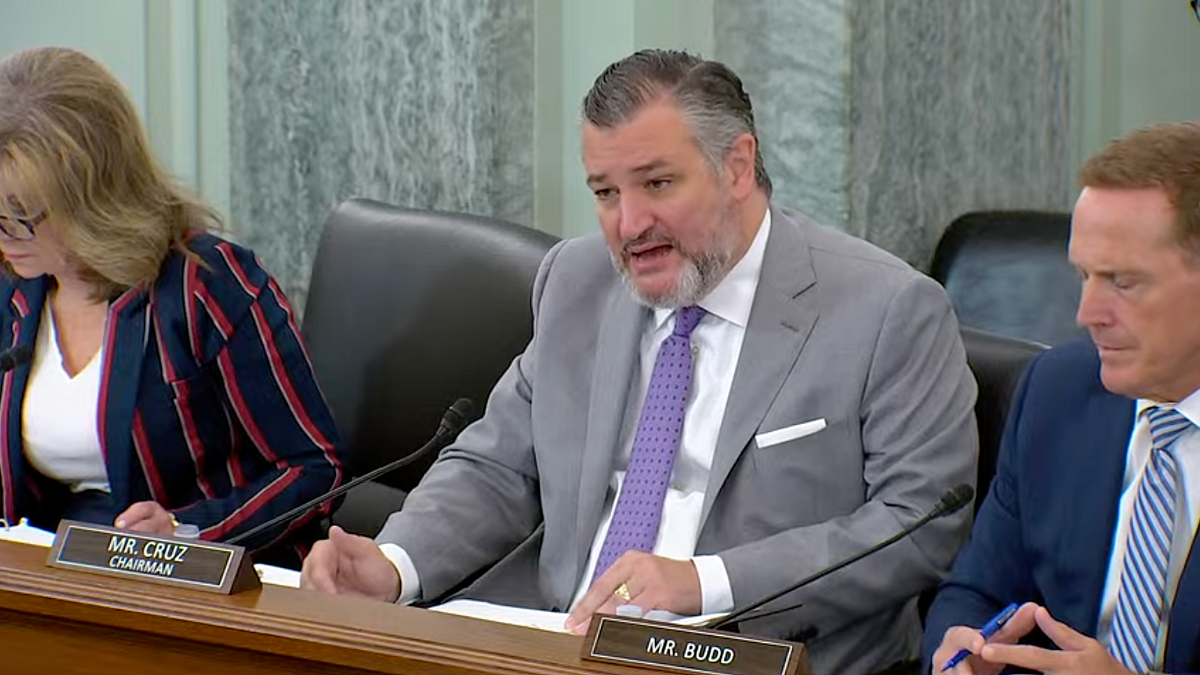US Senator Ted Cruz Proposes SANDBOX Act to Waive Federal Regulations for AI Developers
Justin Hendrix, Ben Lennett / Sep 10, 2025
US Senator Ted Cruz (R-TX), chairman of the Senate Commerce Committee, at a hearing titled "AI’ve Got a Plan: America’s AI Action Plan" on Wednesday, September 10, 2025.
On Wednesday, United States Senator Ted Cruz (R-TX) unveiled the “Strengthening Artificial intelligence Normalization and Diffusion By Oversight and eXperimentation Act,” or the SANDBOX Act. The 41-page bill would direct the White House Office of Science and Technology Policy (OSTP) to establish a federal “regulatory sandbox” for AI developers to apply for waivers or modifications on compliance with federal regulations in order to test, experiment with, or temporarily offer AI products and services.
In a statement, Cruz said the legislation is consistent with the goals of the Trump administration’s AI Action Plan, which was released in July, and is the first step toward a “new AI framework” that can “turbocharge economic activity, cut through bureaucratic red tape, and empower American AI developers while protecting human flourishing.”
The bill would create a mechanism for companies to apply to the OSTP director for a waiver or modification to rules or regulations under any federal agency “that has jurisdiction over the enforcement or implementation of a covered provision for which an applicant is seeking a waiver or modification” under the sandbox program. Waivers or modifications would be granted for a two-year period, with four potential renewals totaling up to a decade.
Applicants under the program must demonstrate “how potential benefits of the product or service or development method outweigh the risks, taking into account any mitigation measures,” including descriptions of “foreseeable risks” such as “health and safety,” “economic damage,” and “unfair or deceptive trade practices.” Applicants that receive a waiver are not immune to civil or criminal liability that may result from the deployment of their AI product or service. The bill requires mandatory incident reporting under a public disclosure mechanism.
Federal agencies are given 90 days to review applications. If an agency does not submit a decision or seek an extension by the deadline, the OSTP director is permitted to presume that the agency does not object. If an application is denied, it can be appealed.
The bill also includes a provision for Congressional review of rules and regulations that “should be amended or repealed as a result of persons being able to operate safely without those covered provisions” under the sandbox program. The OSTP director is tapped to identify any such provisions in a “special message” to Congress submitted each year.
The bill also contemplates coordination with “State programs that are similar or comparable to the Program,” including to “accept joint applications for projects benefitting from both Federal and State regulatory relief” and to harmonize other aspects of the program.
The Senate Commerce Committee’s announcement said the bill is backed by groups including the Abundance Institute, the US Chamber of Commerce, and the Information Technology Council (ITI). Public Citizen, a watchdog group, said in a statement that the bill puts public safety on the “chopping block” in favor of “corporate immunity.”
The announcement of the bill was timed alongside a Senate Commerce hearing titled “AI’ve Got a Plan: America’s AI Action Plan,” which featured testimony from OSTP director Michael Kratsios. During the hearing, Cruz laid out a legislative agenda on AI, including reducing the regulatory burden on AI developers. But, he said, AI developers should still face consequences if they create harm.
“A regulatory sandbox is not a free pass,” said Cruz. “People creating or using AI still have to follow the same laws as everyone else. Our laws are adapting to this new technology.”
In response to a question from Cruz, Kratsios said he would support the approach described by the SANDBOX Act.
The new legislation follows a failed effort by Cruz and other Republicans to impose a sweeping moratorium on the enforcement of state laws regulating artificial intelligence. Earlier this year, the House passed the moratorium as part of the so-called “One Big, Beautiful” bill, or HR 1. After efforts by Cruz to move the measure through the Senate by tying it to the allocation of $42 billion in funding for the Broadband Equity and Access Deployment (BEAD) program, the chamber voted 99-1 to strip it out of the budget bill prior to passage. Still, some experts remain concerned that the administration may try to use other federal levers to restrict state AI laws.
Authors

